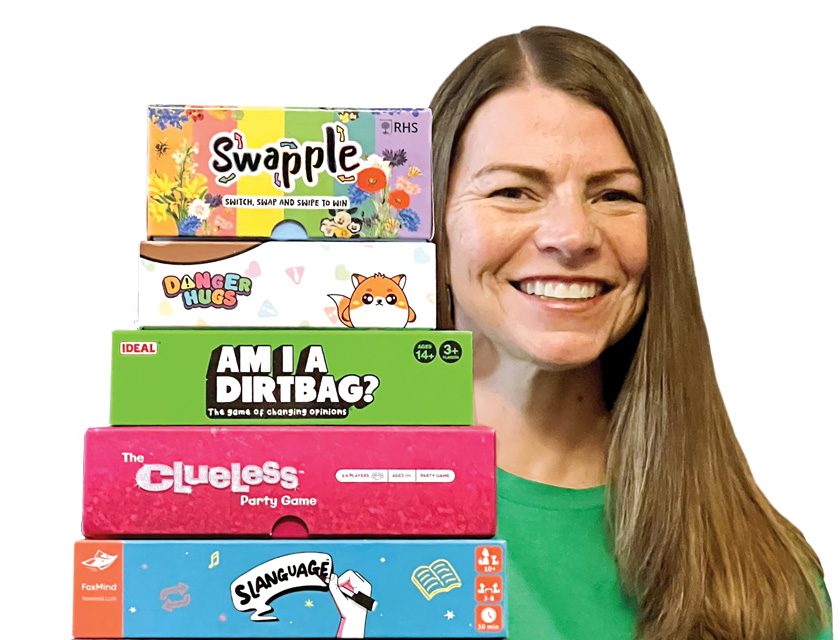International Trade Commission, which can punish patent infringers, feels attacks led by Big Tech
Big Tech’s complaints were so egregious that U.S. Rep. Thomas Massie (R-Kentucky) lost his temper: “I’m appalled that you guys are here testifying like this.”
BY LOUIS CARBONNEAU
We recently noted the large number of significant patent verdict awards of 2024. Although those are usually a positive indicator of the health of the patent market because they may instill some fear in serial infringers, the reality is, they have their limit—the same way a blue-collar worker winning the Powerball does not mean the middle class is suddenly looking to brighter prospects.
Nevertheless, we saw two more large verdicts this summer: one for over $100 million against Amazon and one for a whopping $847 million against Verizon.
Both will likely be appealed, possibly overturned and almost certainly reduced. But they should serve as a reminder that there is some level of accountability for infringing on other people’s intellectual property.
In this regard, it is interesting albeit not surprising that we are seeing even more frontal attacks in the United States on the last agency standing that can really punish patent infringers—namely, the International Trade Commission.
I will remind readers that the ITC, despite its moniker, is a U.S. agency whose mission is to protect American companies against illegal imports. This includes counterfeit goods and those who infringed U.S. patents, as long as some “domestic industry” test is met.
Once it receives a formal complaint, it investigates and can adjudicate on patent infringement cases. Although it cannot grant damages (plaintiffs have to file in district court for that), it can issue an “exclusion order,” which is the closest thing to an injunction, and block infringing goods from being imported/sold in the largest market
of the world.
This creates leverage for patent owners that they have lost since the 2006 decision in eBay v. MercExchange did away with injunctions. We also saw this in the Massimo v. Apple saga a few months ago.
Well, Big Tech is now lobbying Congress aggressively to curb the ITC power, based on the specious arguments that 1) it is wreaking havoc in its manufacturing operations (which it can’t if the goods are
not imported), and 2) that it is duplicative of the district court system (we just explained that it is not).
A public hearing at the House IP sub-committee on July 23 put this latest attempt on full display.
Big Tech’s complaints were so egregious that U.S. Rep. Thomas Massie (R-Kentucky), who is sympathetic to the small inventors’ plight, lost his temper during the hearing: “I’m appalled that you guys are here
testifying like this. This is shameless … what you’re saying is if you’re only stealing 10 percent of the product, let us keep importing it, let us just keep stealing it.”
Even if the impact of the ITC can be major in some cases (Apple, after much screaming and lobbying the White House, simply disabled a subpar feature in its Apple watch to satisfy the exclusion order), two
wrongs do not make a right.
Weakening the ITC’s power would make the United States even more irrelevant when it comes to patent enforcement.
******
Trust in UPC grows: To most of us, the past decade has appeared to be a self-imposed “patent peace” between large competitors. The reality, however, may be more closely correlated to trust issues in the U.S. institutions tasked with supporting legitimate patent infringement claims than some kind of legal restraint.
At least, this is what recent activity between operating companies before the Unitary Patent Court in Europe suggests, as we are seeing a flurry of new cases brought before the UPC by household names such as Chinese telecom giant Huawei and U.S. solar manufacturer First Solar.
We have discussed at length the flurry of activity before the UPC— driven by its rapid docket, competent panels of judges and ability to issue injunctions when necessary.
We predict this trend will continue as long as patent owners feel they can get a fair shake in court, a quick resolution and injunctive relief when necessary—all current attributes of the UPC.
Unfortunately for small patent owners who tend to only protect their invention in the United States, the UPC development remains of little assistance to them. Help will need to come from U.S. institutions themselves.
****
Interdigital v. Lenovo: Who won? The IP community has followed the battle between Interdigital and Lenovo very closely these past
Months. The trial attracted hour-by-hour reporting.
At the end, the court sided with Interdigital, condemning Lenovo to pay back damages on its infringing SEP patents. The U.S. company did not take long to tout this as a major victory.
However, the royalty rate established by the UK court ended up being roughly in line with Lenovo’s calculations, and far below what Interdigital had hoped. This means a good public win for Interdigital but a disappointing decision for all Standard Essential Patent owners who will see royalty rates plummet for their innovation.
In a related announcement, Interdigital reported that it entered a worldwide licensing agreement with Google.



